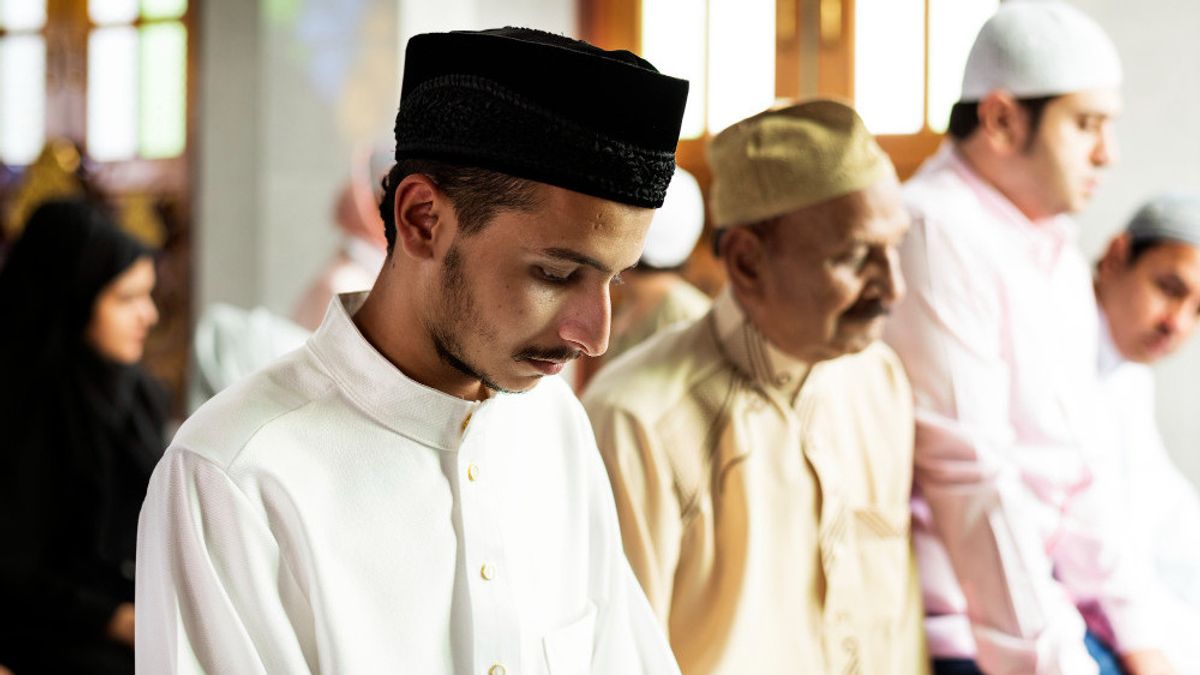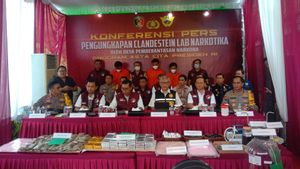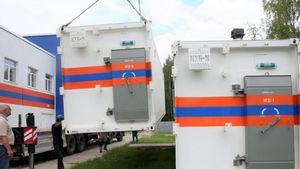YOGYAKARTA - Although both Islamic religious organizations, there are differences between Nahdlatul Ulama (NU) and Muhammadiyah in activities in the month of Ramadan. Both have differences in determining the early times of fasting and Eid prayers. In addition, there are different traditions of tarawih NU and Muhammadiyah prayers.
Every month of Ramadan, Muslims will perform tarawih prayers. This sunnah prayer is carried out in congregation at night. The number of rakaat tarawih prayers is different from the obligatory prayers and other sunnah prayers. Not only that, NU organizations also have different procedures from Muhammadiyah in tarawih prayers.
Both Muhammadiyah and NU, both have quite a large congregation. So what are the differences in the tradition of tarawih NU and Muhammadiyah prayers which are important to watch?
Although there are differences in the tradition of praying tarawih Muhammadiyah and NU, it does not mean that one of them is one of the procedures. The difference in the NU and Muhammadiyah tarawih prayers lies in the number of rakaats before the lightning.
The rest of the tarawih NU and Muhammadiyah prayer procedures are still the same, both in reading, movement, and others. The following is the difference in the tarawih prayers of Muhammadiyah and NU:
The Muhammadiyah tarawih prayer is held in eight rakaats. This number of rakaats is less than the Nahdlatul Ulama version of the tarawih tradition. After eight rakaats, prayers were continued with an additional three rakaat drivers.
So the total number of rakaat for tarawih prayers for Muhammadiyah is 11 rakaat. Because the number of rakaat is less, usually the Muhammadiyah version of tarawih prayer takes place faster than the NU procedure.
SEE ALSO:
The NU tarawih prayer has a larger number of rakaats than Muhammadiyah, which is 20 rakaat. After that, finish the rakaat, then add three rakaat prayers. So the NU version of tarawih prayer is performed with a total of 23 rakaats.
The difference in the NU and Muhammadiyah tarawih prayers is not new. The fact is that the tarawih traditions of the two Islamic organizations have existed for a long time. In the past, there were many beliefs among scholars regarding the number of tarawih prayers.
Among various scholars, there were those who trusted the tarawih rakaat totaling 11, 13, 21, 38, 41, and even 47 rakaat. The difference in the number of rakaats then reached the final agreement. At that time, they agreed to rakaat tarawih prayers totaling 20 with each two rakaat ending greetings.
However, at that time there were also ulama who had a tarawih prayer habit with eight rakaats plus three khakaat drivers. So the difference in the number of rakaat tarawih prayers is a common thing and has happened since ancient times.
Until now, Muslims among NU and Muhammadiyah also believe in the implementation of tarawih prayers with the number of each version of the rakaat. Although both of them have differences, the congregation of the two do not contradict each other or feel the most correct.
The two organizations both hold a strong commitment to Islamic values. The difference in tarawih open procedures means breaking or reducing the unity of Muslims in the country. In fact, the difference reflects the wealth and diversity of religious traditions.
Such is the review of the different tarawih NU and Muhammadiyah traditions which are interesting to know. The difference in tarawih prayer procedures between the two Islamic organizations is only in terms of the number of rakaats. Muhammadiyah version of tarawih prayers are carried out with fewer numbers of rakaat than NU versions. Also read how to determine the NU, Muhammadiyah, and government versions of Ramadan.
Stay up to date with the latest domestic and other overseas news on VOI. We present the latest and most updated nationally and internationally.
The English, Chinese, Japanese, Arabic, and French versions are automatically generated by the AI. So there may still be inaccuracies in translating, please always see Indonesian as our main language. (system supported by DigitalSiber.id)


















